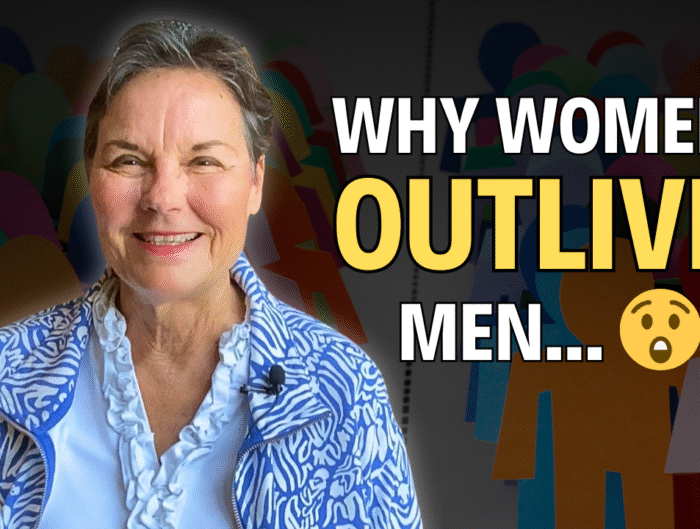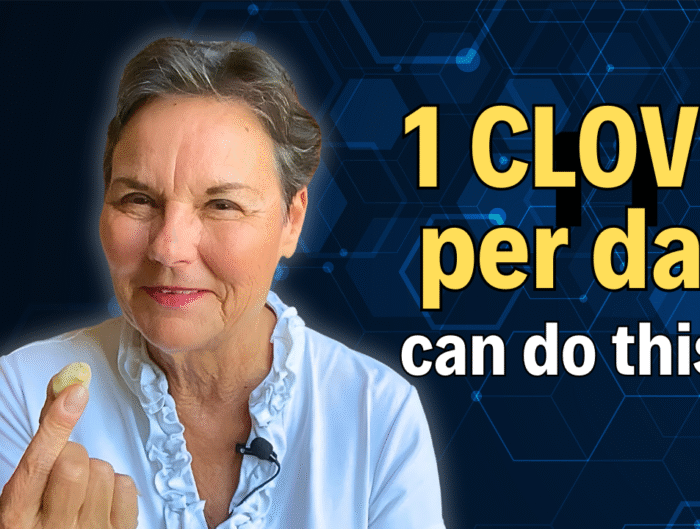Parsley is a nutritional powerhouse packed with vitamins, minerals, and antioxidants. It’s especially rich in vitamin A providing 108% of the Referenced Daily Intake or RDI, Vitamin C providing 54% of RDI, vitamin K providing 547% of RDI along with potassium, calcium, magnesium, iron, and folate in ½ cup or 30 grams of parsley. These nutrients contribute to blood health, bone strength, and immune function. Parsley can be used as a diuretic. It also contains plant compounds and antioxidants that help with digestion, fighting cancer, heart disease, and lowering inflammation.
Who would’ve thought this bright green herb could provide so many benefits, and it’s been used for thousands of years. There are two types of Parsley–French-curly and Italian-flat. Its mild, yet bitter flavor can be used in many recipes with only 11 calories in 30 grams.
Here are eight healthy benefits of using parsley:
- Supports bone health. Advertisements always tout milk as a great way to strengthen your bones, but greens rich in vitamin K, calcium, and magnesium such as parsley are powerful for bone health, too. Vitamin K is known for strengthening and altering bone structure. We need it to help us from bleeding to death when we are injured, and it plays a role in brain health. Eating foods high in vitamin K has been linked in research to a reduced risk of fractures and improved bone mineral density. Can you imagine a commercial for bone health with a middle-aged person eating a handful of parsley?
- May help fight cancer. Parsley contains plant compounds or phytochemicals known to have anticancer effects such as myricetin, chlorophyll, and apigenin, which all work against carcinogenic agents. This is why I use a marinade for all my grilling which contains parsley. It’s rich in vitamin C and flavonoids, which both reduce oxidative stress and can lower risks of certain cancers. Dietary intake of flavonoids can reduce colon cancer risk by up to 30%. Again,1/2 cup of parsley provides 53% of the RDI for vitamin C which also reduces the risk of overall cancer by 7%. A University of Missouri study in 2012 found that the compound apigenin, found in parsley and celery, can inhibit the growth of certain types of breast cancer tumors in rats. The research also indicated that apigenin can delay or even stop tumor development by blocking the formation of new blood vessels within the tumors.
- Protects your vision and eyes. Parsley contains three carotenoids that protect your eyes and promote healthy vision. These carotenoids are zeaxanthin, lutein, and beta carotene. These are the same supplements my optometrist, Dr. Henry Jenkins, recommended for me to take for my eye health. Eating foods high in zeaxanthin and lutein may help prevent age-related macular degeneration by up to 28%. Diabetes is the number one cause of retinopathy, and the beta carotene in parsley helps to stimulate tiny blood vessels around the eye and can help to lower blood sugar levels.
- Supports liver detoxification. With all the processed foods and toxins all around us, our livers are working overtime. Toxins and heavy metals bind to parsley allowing them to be excreted through our digestive tract. Parsley contains apigenin, which is anti-inflammatory and supports the liver in detoxifying the body and increasing enzymes. Chlorophyll, the green plant pigment that gives parsley its rich green color, protects against highly toxic substances. You can actually detox your body by making a tea with green tea and parsley.
5. Improves cardiovascular health. Parsley is a great source of the B vitamin folate. High intake of dietary folate has been known to reduce heart disease risk by 38% and low intake of folate actually increases one’s risk of heart disease by 55%. In addition, folate benefits heart health by lowering homocysteine levels. High homocysteine has been linked to a higher risk of heart disease because it damages blood vessels at high levels. When you eat parsley, it actually reduces your homocysteine levels.
- Improves digestion. Parsley has long been used in folk medicine as a digestive aid. The essential oils in parsley stimulate the production of bile, digestive juices, and enzymes.
- Improves kidney health and may prevent kidney and bladder stones. The flavonoids in parsley help reduce oxidative stress in the kidneys, which is a major factor in the development and progression of kidney disease. Antioxidants help to neutralize free radicals and protect renal tissues from damage. Parsley contains anti-inflammatory compounds and can reduce inflammatory markers like tumor necrosis factor-alpha (TNF –a) and interleukin-1 beta (IL -1B), which are associated with kidney disease progression. It may help prevent kidney stones by reducing urine volume and reducing the saturation of certain minerals that contribute to the formation of kidney stones. Parsley can also be used as a diuretic. The Journal of Ethnopharmacology found that parsley made as a tea reduced water retention in rats. Parsley also boosts immune function.
And
- Freshens bad breath. Parsley prevents bad breath because it contains antibacterial properties that inhibit the development of bacteria that promote halitosis.
Parsley can be eaten whole as a snack, sprinkled fresh on salmon fish, and casseroles, mixed into salad dressings, and added to soups, marinades, and sauces. It can also be made into a tea by crushing the leaves into a tea ball and steeping the ball in hot water for five minutes or using parsley in a tea brewing container. If you don’t like the taste of parsley, you can flavor the juice with mint tea or other teas.
I use parsley in my Chicken and Rice Soup to add flavor and nutrients. Fresh parsley is easily grown right at home and offers the most nutrition.
There are some cautions. Pregnant women are advised to avoid consuming large amounts of parsley, as it may induce uterine contractions. If you’re taking a blood thinner like warfarin (Coumadin), it may be best to drink parsley tea in moderation because high amounts of vitamin K may interact with these medications. Parsley tea is also not recommended for those taking diuretics, as it may cause excess water loss.
To extend the life of parsley, wrap the bunch in a damp paper towel and store in a glass container in your refrigerator. Parsley can also be dried. Next time you see parsley served on a plate for decoration, don’t let the waiter take it away. Simply eat it as a breath freshener and for its nutrients. Or better yet, if others you are eating with don’t eat theirs, ask them to pass it down to you. I’ve actually done that on a Viking Riverboat Cruise. They grow many herbs on their top deck and generously garnish all dishes and desserts with fresh herbs. In these days, I never let a fresh herb pass me by.
Did you know that parsley has all these health benefits? How do you use this superfood?
View this message on YouTube:
Eight Healthy Benefits of Parsley
For Your Health,
Ginny
 Ginny Dent Brant is a speaker and writer who grew up in the halls of power in Washington, DC. She has battled cancer, ministered around the world, and served on the front lines of American culture as a counselor, educator, wellness advocate, and adjunct professor. Brant’s award-winning book, Finding True Freedom: From the White House to the World, was endorsed by Chuck Colson and featured in many TV and media interviews. Unleash Your God-Given Healing: Eight Steps to Prevent and Survive Cancer was released in May 2020 after her journey with cancer and was recently awarded the First Place Golden Scrolls Award for Memoirs, a finalist in Serious Writers Book of the Decade, and Second Place in both Selah Awards for Memoirs and Director’s Choice Award for Nonfiction at the Blue Ridge Mountain Christian Writer’s Conference. It recently received the Christian Authors Network’s (CAN) Gold Award for Excellence in Marketing for reaching 62.5 million people with a message of cancer prevention and survival. It was written with commentary from an oncologist and was featured on CBN’s Healthy Living Show, Atlanta Live, and CTN’s Homekeepers along with over 75 media outlets. Learn more and cancer and wellness prevention blog and book information at www.ginnybrant.com. Ginny is on YouTube
Ginny Dent Brant is a speaker and writer who grew up in the halls of power in Washington, DC. She has battled cancer, ministered around the world, and served on the front lines of American culture as a counselor, educator, wellness advocate, and adjunct professor. Brant’s award-winning book, Finding True Freedom: From the White House to the World, was endorsed by Chuck Colson and featured in many TV and media interviews. Unleash Your God-Given Healing: Eight Steps to Prevent and Survive Cancer was released in May 2020 after her journey with cancer and was recently awarded the First Place Golden Scrolls Award for Memoirs, a finalist in Serious Writers Book of the Decade, and Second Place in both Selah Awards for Memoirs and Director’s Choice Award for Nonfiction at the Blue Ridge Mountain Christian Writer’s Conference. It recently received the Christian Authors Network’s (CAN) Gold Award for Excellence in Marketing for reaching 62.5 million people with a message of cancer prevention and survival. It was written with commentary from an oncologist and was featured on CBN’s Healthy Living Show, Atlanta Live, and CTN’s Homekeepers along with over 75 media outlets. Learn more and cancer and wellness prevention blog and book information at www.ginnybrant.com. Ginny is on YouTube
Invite Ginny to speak at your church or group and download her speaker brochure
Link to buy book at Unleash Your God-given Healing
Click to sign up to take Conquering Cancer Course
Ginny is a cancer coach. Make an appointment to meet with her:




